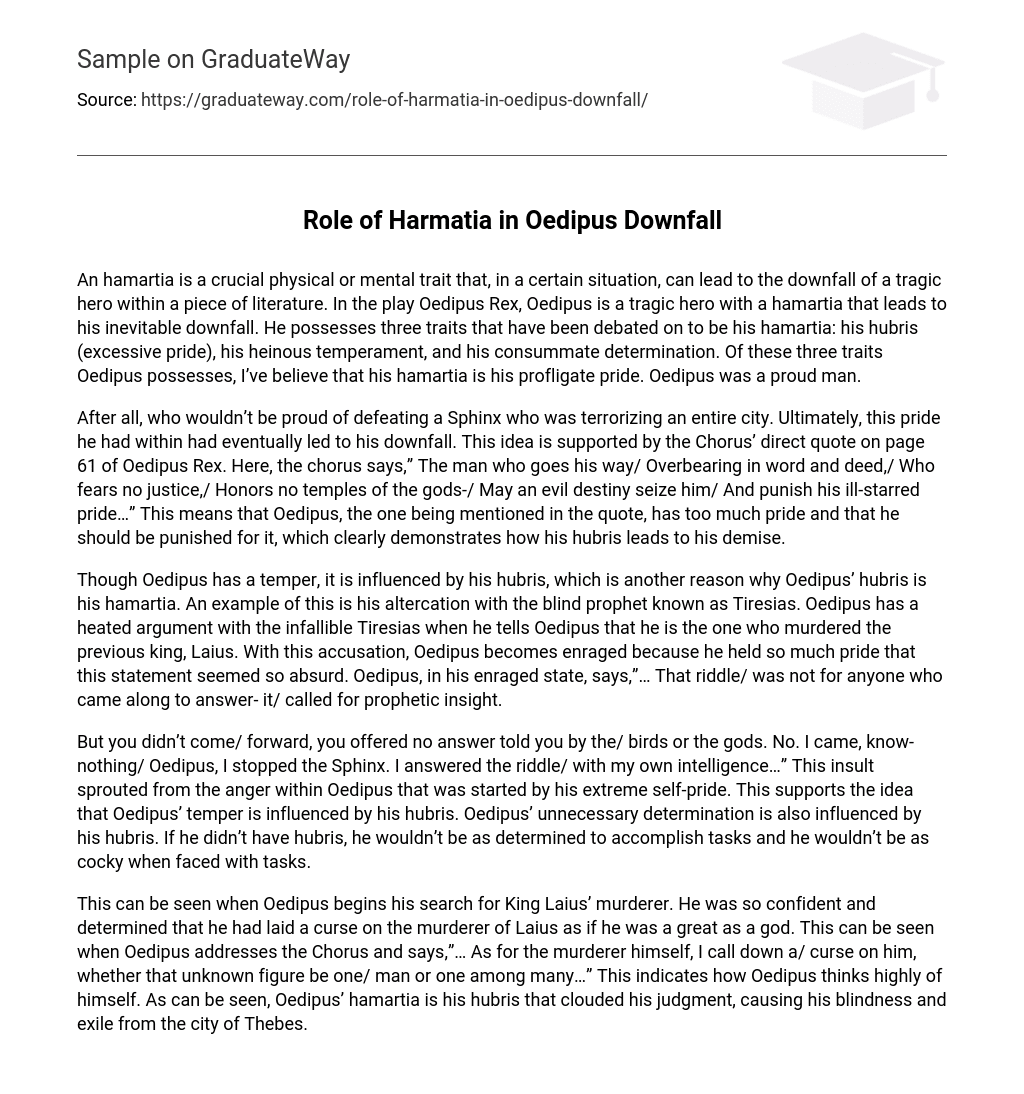An hamartia, also known as a tragic flaw, is a crucial physical or mental trait that can lead to the downfall of a tragic hero in literature. In the play Oedipus Rex, Oedipus is a tragic hero with a hamartia that ultimately causes his downfall. There are three traits that have been debated as Oedipus’ hamartia: his hubris (excessive pride), his heinous temperament, and his unwavering determination. Out of these three traits, I believe that his hamartia is his excessive pride. Oedipus was a man filled with pride.
The text highlights the pride that Oedipus felt after defeating the Sphinx and how this ultimately led to his downfall. The Chorus in Oedipus Rex directly quotes on page 61, emphasizing that anyone who is arrogant and does not respect justice or the gods will suffer from their ill-fated pride. This quote specifically refers to Oedipus, indicating that he possessed excessive pride and should be punished for it. Consequently, it is evident how Oedipus’s hubris plays a significant role in his eventual demise.
Despite Oedipus’ temper, it is his hubris that influences it, making it his hamartia. For instance, when faced with the blind prophet Tiresias, Oedipus engages in a fierce argument. Tiresias accuses Oedipus of murdering the former king, Laius. The absurdity of the accusation infuriates Oedipus, who is consumed by his overwhelming pride. In his enraged state, Oedipus claims that the riddle posed by the prophet required prophetic insight rather than any ordinary person to solve.
However, Oedipus did not step forward or offer any response to the message conveyed by the birds or the gods. Instead, it was me, Oedipus, a person ignorant of knowledge, who confronted and defeated the Sphinx. I solved its riddle using my own intellect…” This outrage stemmed from Oedipus’ anger, which was initially prompted by his excessive self-confidence. This reinforces the notion that Oedipus’ temper is influenced by his arrogance. Furthermore, his unwarranted determination is also influenced by his hubris. Without hubris, he would not possess such a strong drive to accomplish tasks nor act so arrogantly when faced with them.
This can be seen when Oedipus begins his search for King Laius’ murderer. He was so confident and determined that he had laid a curse on the murderer of Laius as if he was a great as a god. This can be seen when Oedipus addresses the Chorus and says,”… As for the murderer himself, I call down a/ curse on him, whether that unknown figure be one/ man or one among many…” This indicates how Oedipus thinks highly of himself. As can be seen, Oedipus’ hamartia is his hubris that clouded his judgment, causing his blindness and exile from the city of Thebes.





